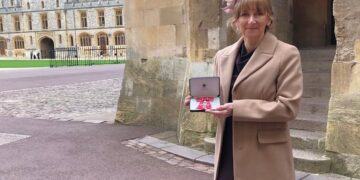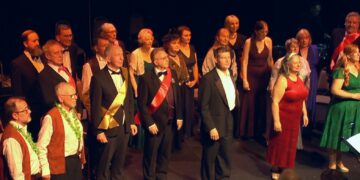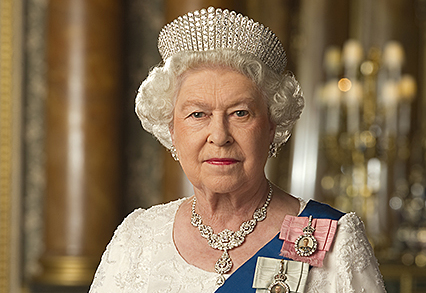As one of the BBC’s Royal Correspondents during the 1990s, I was, on one occasion during a Royal Tour of the Far East, privileged to have briefly met Her late Majesty Queen Elizabeth II during one of the receptions that were regularly held for the travelling media who accompanied the principal Royals on foreign tours.
Such brief meetings – inevitably they were always brief – usually focused on good-humoured pleasantries surrounding the trip; in this case they ranged from the possibly confusing similarity of my surname to that of my colleague and fellow Royal correspondent Nicholas Witchell, who was travelling with me, to the splendid facilities on board the aircraft that had been chartered for Her Majesty for that particular visit.
Even for a journalist well used to meeting the powerful and famous, it was still a profoundly memorable encounter.
Not only was I speaking to arguably the most well-known woman in the world, but, as is often said by those who’ve met her, she genuinely made you feel, in that moment, special.
So, after the global outpouring of sorrow and tribute – and the millions of words written about her since her passing – and in the wake of this week’s deeply moving State funeral, what more can be said?
She was, quite simply, an extraordinary woman who led an extraordinary life, one utterly committed to public service and duty on behalf of all of us, royalist and republican alike; a Sovereign who not only personified our country in the eyes of the world but also one who, in many respects, represented the very best of us here at home.
She connected with the vast majority of Britons in an unspoken, almost instinctive way; a deep-rooted emotional connection born of both the personal and the patriotic that is always present in the British psyche, sensed if not often articulated, a unifying force that inexorably rises to the fore at momentous times in our national life such as we have just witnessed.
The unity of “the queue” – that most British symbol of fair play and decency – as people showed such phenomenal dedication to pay their respects at Her Majesty’s lying-in state in Westminster, not only showed just how we as a nation had such high personal affection for her, but also how moved by the institution of monarchy we collectively remain.
The Queen was, in short, the backdrop to all our lives and with her passing that sense of permanency we had all effectively taken for granted, consciously or sub-consciously, was suddenly and shockingly removed.
In our democracy, republicans have, of course, the absolute right to question the validity of the institution, its privileges and its cost, even if they cannot see its value, but if anything can be drawn from the outpouring of sorrow, respect and emotion that we have witnessed since Her Majesty’s death it is that those who would see Britain a Republic remain vastly outnumbered by those who deeply adhere to the abiding principle of the UK remaining a constitutional monarchy.
An innate love for our historic structures and traditions remains central for the quiet majority, a passion only occasionally roused to overt expression of their emotional ties to the concept of an apolitical Head of State, one who represents us all, regardless of where our political sympathies may lie, through good times and bad.
Our own Royal County of Berkshire can, of course, lay claim to some of the strongest Royal connections in the realm, not least through Her Majesty’s visits to Reading over the years, as reported in last week’s Reading Today, and it is now, most appropriately, that to Berkshire Her Majesty has returned once again to her final resting place at Windsor Castle.
So what of King Charles III? I have no doubt that he will be an exceptional King, a Head of State who will carry the institution forward, with his mother’s remarkable example as his guiding light.
His mother was indeed our constant, a fixed point in all our lives for as long as most of us have lived ourselves; with her passing so, too, will her son, and his heir, now be our new constants through all that lies ahead – the celebrations, challenges and tribulations alike – in the national life of our great country as we enter the new Carolean age.
Cllr Clarence Mitchell is the Conservative Group Leader, and member for Emmer Green on Reading Borough Council























